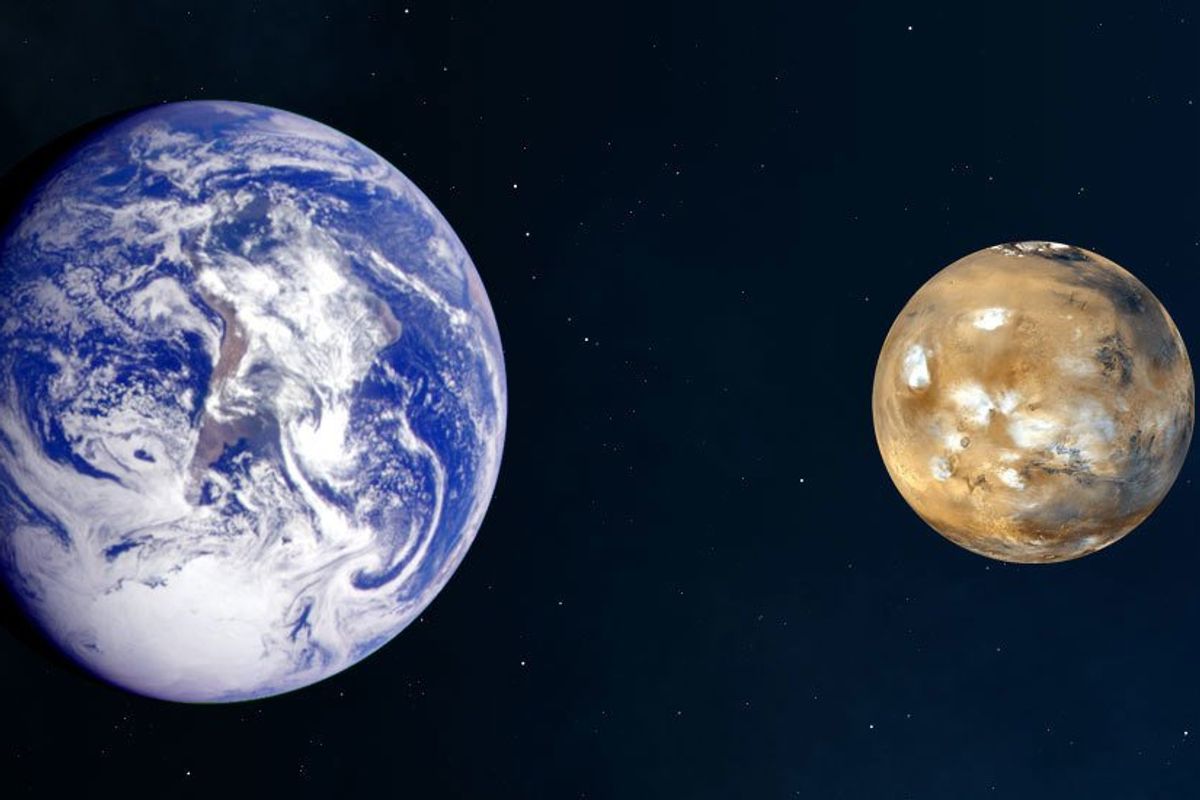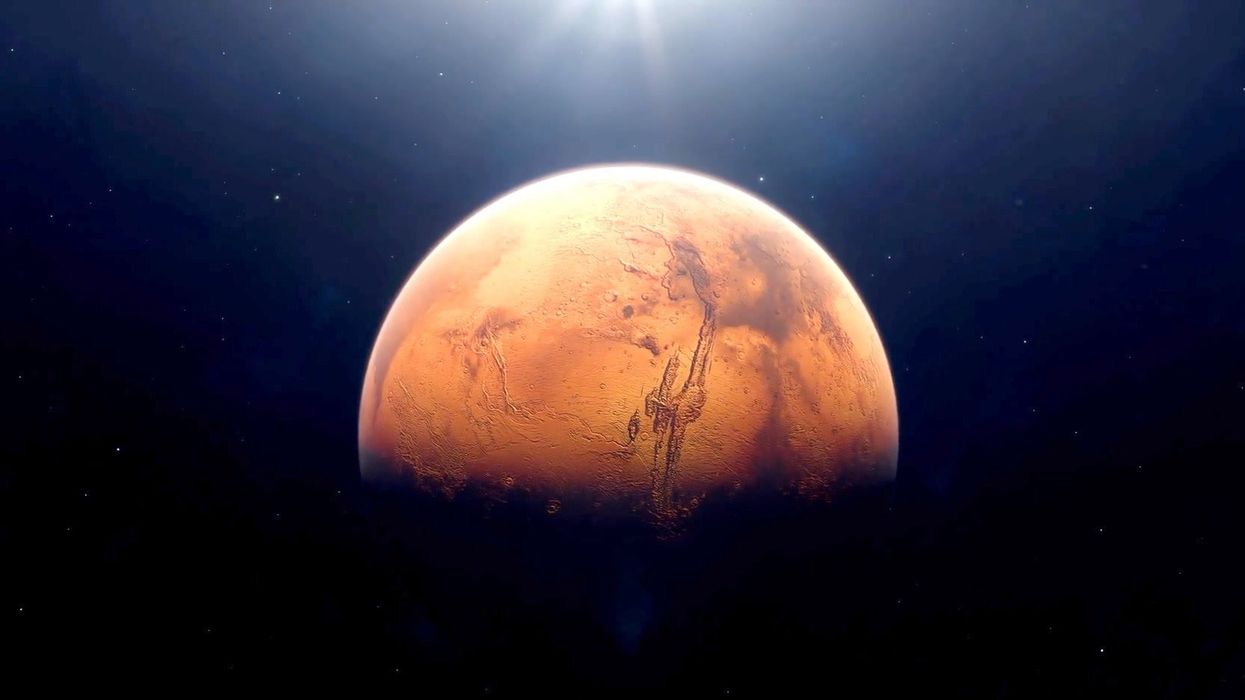Harriet Brewis
Mar 17, 2024
Mars Has a Strange and Periodic Impact On Earth With Massive Climate …
ZMG - Amaze Lab / VideoElephant
We’ve long known that the Moon affects the tides, but it now transpires that another great celestial force is playing games with the world’s oceans.
Scientists have discovered a secret connection between the orbits of Earth and Mars, and found that this cosmic duet plays an important part in global warming.
The researchers, based at the University of Sydney and the Sorbonne in Paris, found that, every 2.4 million years, the interaction between the two planets results in key changes to deep ocean currents.
This, in turn, is linked to periods of increased solar energy and a warmer climate.
For their study, published in the journal Nature Communications, the geoscientists analysed whether ocean-bottom currents become more active or slower-moving in warmer climates.
"We were surprised to find these 2.4-million-year cycles in our deep-sea sedimentary data," lead author Adriana Dutkiewicz, of the University of Sydney, said in a statement.
"There is only one way to explain them: they are linked to cycles in the interactions of Mars and Earth orbiting the Sun."

To conduct their research, Dutkiewicz and her colleagues consulted more than half a century of scientific drilling data from hundreds of sites across the world to build a picture of deep-sea currents over time.
They used the deep-sea sediment record to check for links between sedimentary shifts and changes in the Earth’s orbit, and found that the strength of deep-sea currents shifts in 2.4-million-year cycles.
These cycles are called “astronomical grand cycles” which, according to the Sydney and Sorbonne experts, occur thanks to the alignment between the orbits of Earth and Mars.
Co-author Professor Dietar Müller, of the University of Sydney, said: “The gravity fields of the planets in the solar system interfere with each other and this interaction, called a resonance, changes planetary eccentricity, a measure of how close to circular their orbits are.”
This means periods of higher solar radiation on Earth and a warmer climate, occurring in cycles of 2.4 million years.
The team found that warmer cycles correlate with more regular breaks in sediment on the deep-sea floor, which are related to stronger deep ocean circulation.
They discovered that these breaks also corresponded with known periods of warmer climate, including the Paleocene-Eocene thermal maximum that occurred around 56 million years ago, when Earth's temperature rose by up to 8C (14.4F), as Science Alert notes.
This event has previously been attributed to various different causes, including a glitch in Earth's orbit and a passing comet, but a link to Mars is a compelling new potential factor.
What’s perhaps most surprising to experts is that the new research contradicts evidence suggesting that a warming climate would result in a more stagnant deep ocean.
This warm-climate-inactive-deep-ocean theory is based on data indicating that the circulation system responsible for maintaining temperate climates in Europe, known as the Atlantic meridional overturning circulation (AMOC), could collapse as global warming melts sea ice.
However, Dutkiewicz and her colleagues have concluded that climate change doesn’t mean more lethargic oceans.
"Our deep-sea data spanning 65 million years suggest that warmer oceans have more vigorous deep circulation," she explained.
"This will potentially keep the ocean from becoming stagnant even if Atlantic Meridional Overturning Circulation slows or stops altogether."
And whilst this could mean that oceans are slightly more resilient to climate change than was previously thought, that isn’t cause for complacency.
It is important to note that the 2.4-million-year cycles are not linked to the global warming, caused by human greenhouse gas emissions, that is currently threatening our planet.
Still, the authors of the new study hope that their results will help to build better climate models and, in so doing, help us prepare for an uncertain future.
Sign up for our free Indy100 weekly newsletter
Have your say in our news democracy. Click the upvote icon at the top of the page to help raise this article through the indy100 rankings
Top 100
The Conversation (0)













